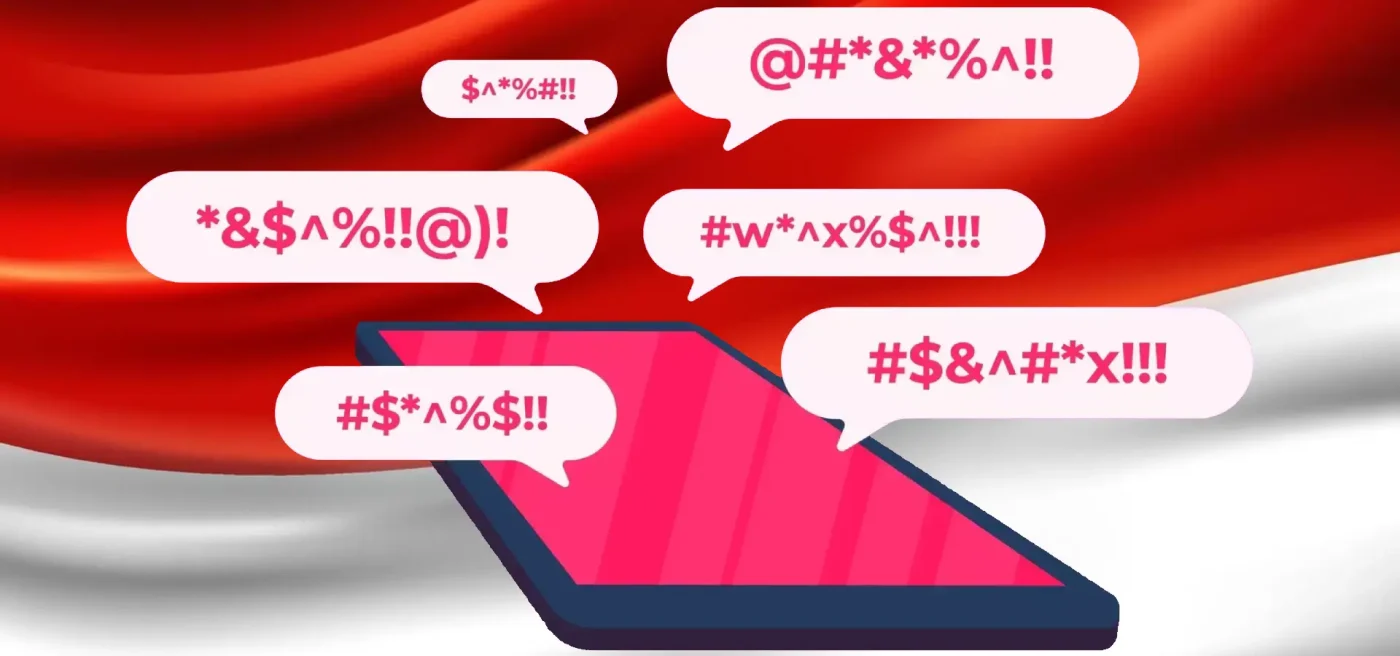In a decisive move to safeguard digital spaces, Indonesian authorities have launched a crackdown on a Facebook group accused of posting explicit content involving incest themes, raising alarm over the potential harm to children. The Jakarta Police, alongside the Communications and Digital Ministry, are targeting the group known as “Fantasi Sedarah”—roughly translated as “blood relative fantasies”—as part of a broader effort to purge online platforms of material that violates societal norms and endangers young users.
Police Probe and Public Outcry
The Jakarta Police’s cybercrime division has initiated a formal investigation into the controversial Facebook group, which has been accused of sharing incest-themed narratives, some reportedly targeting minors. During a press conference on May 18, 2025, spokesperson Adj. Sr. Comr. Reonald Simanjuntak confirmed the probe, stating, “The Jakarta Police’s cybercrime division will investigate and probe the Facebook [group]. We will investigate and probe everything on it” as reported by local media. While it remains unclear whether the group shared explicit images or pornographic materials, the nature of the content has sparked widespread condemnation across social media platforms.
Netizens have expressed deep concern, particularly over content that appears to sexualize children. Many have flagged not only “Fantasi Sedarah” but also several other groups with similar themes, urging authorities to act swiftly. The public outcry underscores a growing awareness of the risks posed by unregulated online spaces, especially to vulnerable demographics.
Government and Meta Collaboration
In response, the Communications and Digital Ministry has coordinated with Meta, Facebook’s parent company, to block “Fantasi Sedarah” and five other groups identified as sharing harmful content. Alexander Sabar, the ministry’s digital monitoring director general, emphasized the urgency of these measures in a statement on May 17, 2025, noting, “These groups fall under the [category] of disseminating [content] that contradict prevailing societal norms.” He added that such material could have a detrimental impact on children.
The blocking of these groups aligns with a recent government regulation on child protection in the digital realm, signed by President Prabowo Subianto on March 28, 2025. This mandate requires both public and private digital platforms to ensure their services are free from content harmful to children under 17, while also fostering a safe online environment for their development. However, Alexander stressed that maintaining a secure digital space is a shared responsibility, calling on the public to actively monitor and report harmful content. “We urge the public to help maintain a safe and trustworthy digital space and to take part in monitoring any content or digital activity that could endanger our children’s future” he said.
Broader Implications for Child Safety
The Women’s Empowerment and Child Protection Ministry has also weighed in, labeling the content as a form of sexual exploitation. In a statement on May 17, 2025, ministry secretary Titi Eko Rahayu condemned the groups, asserting, “Such groups clearly contradict moral values and endanger the safety and future of Indonesia’s children.” She further highlighted the damaging impact of incest-related fantasies on public perceptions of healthy family dynamics, stating, “Sexual fantasies involving incest are not only inappropriate, but also damage public perceptions of healthy family relationships.”
The ministry has urged law enforcement to pursue justice if the ongoing investigation uncovers evidence of criminal behavior. This call to action reflects a broader push to address the intersection of technology and child safety, a pressing issue as digital platforms become increasingly central to daily life in Indonesia, a nation with over 200 million internet users according to recent estimates from the World Bank.
Legal and Cultural Context
Indonesia’s legal framework for digital content is evolving to address emerging threats in the online sphere. The new child protection regulation builds on existing laws, such as the 2008 Electronic Information and Transactions Law, which criminalizes the distribution of obscene content. However, enforcing these laws in the vast, decentralized landscape of social media remains a significant challenge. Platforms like Facebook, with millions of active users in Indonesia, often struggle to monitor and moderate content effectively, relying on a combination of automated systems and user reports.
Culturally, the content in question strikes at the heart of Indonesia’s deeply held family values. The nation, with its diverse ethnic and religious makeup, places a high premium on familial harmony and moral decency, making the proliferation of incest-themed material particularly jarring. Public sentiment, as reflected in social media discussions, reveals a mix of outrage and fear—outrage at the audacity of such groups, and fear for the psychological and social impact on younger generations exposed to harmful narratives.
Challenges in Digital Regulation
The crackdown on “Fantasi Sedarah” and similar groups highlights the broader difficulties of regulating online content in a way that balances freedom of expression with the need to protect vulnerable populations. While blocking groups is a start, experts caution that such measures may only address the symptoms rather than the root causes. Cybercrime units often face resource constraints, and perpetrators can easily create new accounts or migrate to less regulated platforms.
Moreover, the collaboration between the Indonesian government and tech giants like Meta raises questions about accountability and transparency. While Meta has pledged to remove harmful content, the specifics of how decisions are made—and how quickly—remain opaque to the public. This opacity can erode trust, especially among users who fear overreach or censorship under the guise of child protection.
At the same time, the government’s appeal for public participation in monitoring digital spaces introduces its own set of risks. Vigilante actions or mass reporting could lead to misuse, targeting legitimate content or individuals based on personal biases. Striking a balance between community involvement and structured oversight will be critical to the success of Indonesia’s digital safety initiatives.
Global Parallels and Local Solutions
Indonesia’s struggle with harmful online content is not unique. Countries worldwide, from the United Kingdom to Australia, are grappling with similar issues as they seek to protect children in an era of pervasive digital connectivity. The UK’s Online Safety Act, for instance, imposes strict duties on platforms to prevent the spread of illegal and harmful material, a model that Indonesia could potentially draw from. However, any imported solutions must be adapted to local cultural and legal contexts to be effective.
Locally, education and awareness campaigns could complement regulatory efforts. Teaching digital literacy to both children and parents—covering topics like safe browsing habits and recognizing inappropriate content—could empower communities to navigate online risks more effectively. Partnerships with schools, non-governmental organizations, and tech companies could amplify these efforts, creating a multi-layered defense against digital exploitation.
A Path Forward
As Indonesia intensifies its efforts to cleanse digital platforms of harmful content, the investigation into “Fantasi Sedarah” serves as a test case for the nation’s resolve and capacity to protect its youngest citizens. The outcome could set a precedent for how similar cases are handled in the future, shaping the digital landscape for years to come.
Beyond enforcement, the incident underscores the urgent need for a holistic approach that combines legal action, technological innovation, and public education. Only through such a comprehensive strategy can Indonesia hope to shield its children from the darker corners of the internet, ensuring that digital spaces remain arenas for growth and connection rather than exploitation and harm. As the investigation unfolds, the nation watches closely, hopeful for justice and lasting change.















